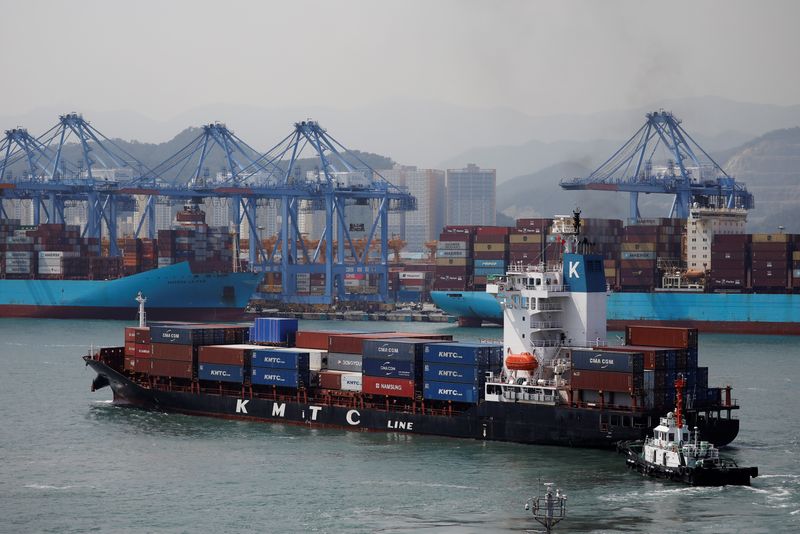By Jihoon Lee
SEOUL (Reuters) - South Korea's economy barely grew in the third quarter as consumer spending showed signs of recovery but exports declined, raising the chances for more stimulus to support growth.
That prompted the central bank to warn of a potential downgrade to its 2024 growth forecast, while the finance minister called for response measures to confront the slowdown.
Gross domestic product in the July-September quarter expanded a seasonally adjusted 0.1% from a quarter earlier, the Bank of Korea's (BOK) advance estimates showed on Thursday, lower than market expectations.
The weak growth is a setback for Asia's fourth-largest economy and could exert pressure on the won, which has weakened nearly 5% against the dollar this month, as the central bank's full-year estimate had already been lowered.
"Weaker-than-expected economic growth data could raise the odds for the front-loading of rate cutting cycle, such as a back-to-back cut in November," said Kim Jin-wook, an economist at Citi. "However, we believe, BOK could maintain a 'wait-and-see' mode for a while considering a recent surge of USD/KRW levels."
The third-quarter growth rate was far weaker than an increase of 0.5% tipped in a Reuters poll of economists and expected by the central bank in its quarterly forecasts provided in August.
Private consumption rose 0.5%, after falling 0.2% a quarter earlier. Construction investment dropped 2.8%, while corporate investment jumped 6.9%.
Exports fell 0.4%, down for the first time since the final quarter of 2022, while imports rose 1.5%, bringing a net negative contribution.
"It is clear that the momentum of exports, which had been supporting the economy, has weakened, while it is too early to say domestic demand is recovering," said Park Sang-hyun, an economist at iM Securities.
Finance Minister Choi Sang-mok said economic data was weaker than expected and called for close monitoring of internal and external factors, suggesting the government should prepare response measures.
In July, the government vowed to support small businesses and the construction sector struggling with high interest rates.
The Bank of Korea, which lowered its full-year estimate from 2.5% to 2.4% in August, said that it will likely be weaker than even that, as it has become "difficult to achieve". The bank next revises its quarterly economic forecasts in November.
"But, when it comes to monetary policy, it does not necessarily mean an immediate rate cut, because it was the external sector, not the domestic one, that dragged down the headline figure," Park said. He expects the central bank to lower rates gradually with the next cut in the first quarter of 2025.
The central bank this month lowered interest rates for the first time since mid-2020 and flagged room for more easing, though it said the timing of any further cuts would be carefully examined amid concerns about rising risks to financial stability.

South Korea's treasury bond yields fell on Thursday, with the policy-sensitive three-year yield down 5.8 basis points to 2.878%, its biggest daily fall since early September.
On an annual basis, the trade-reliant economy grew 1.5%, weaker than the previous quarter's 2.3% and economists' expectations of 2.0%. It was the slowest pace since the third quarter of 2023.